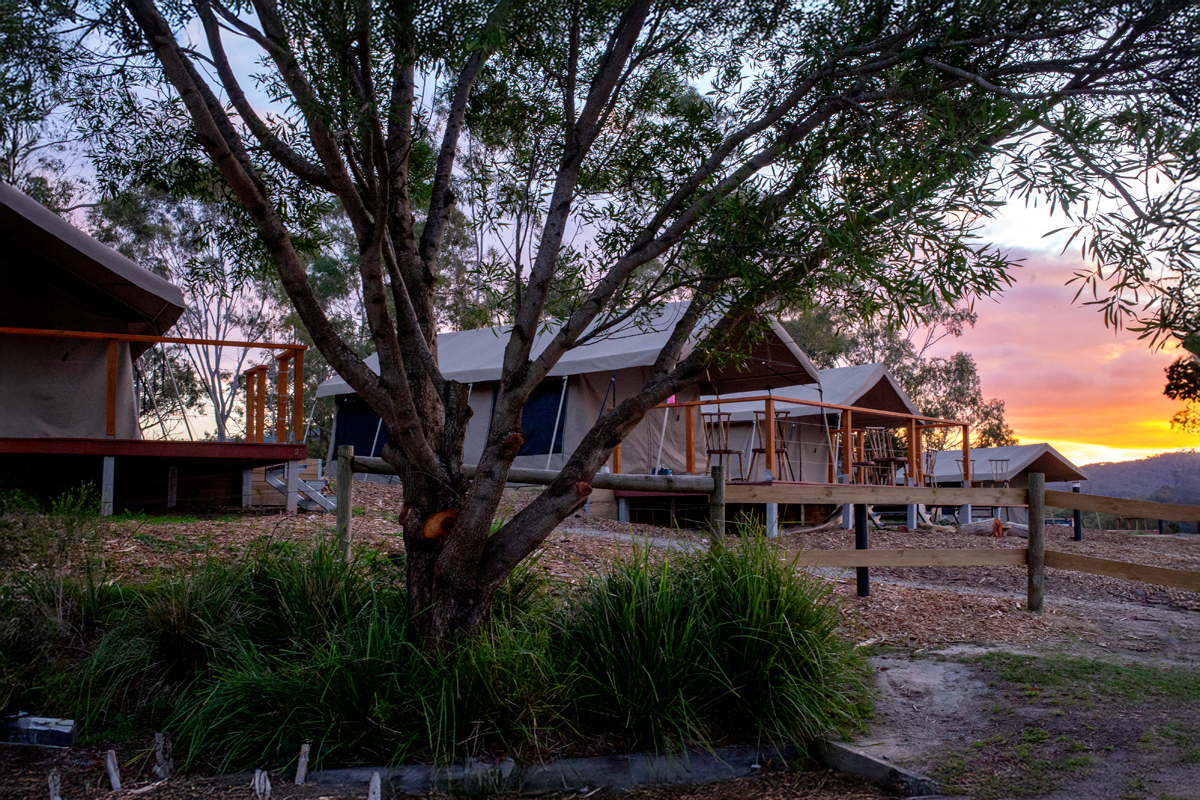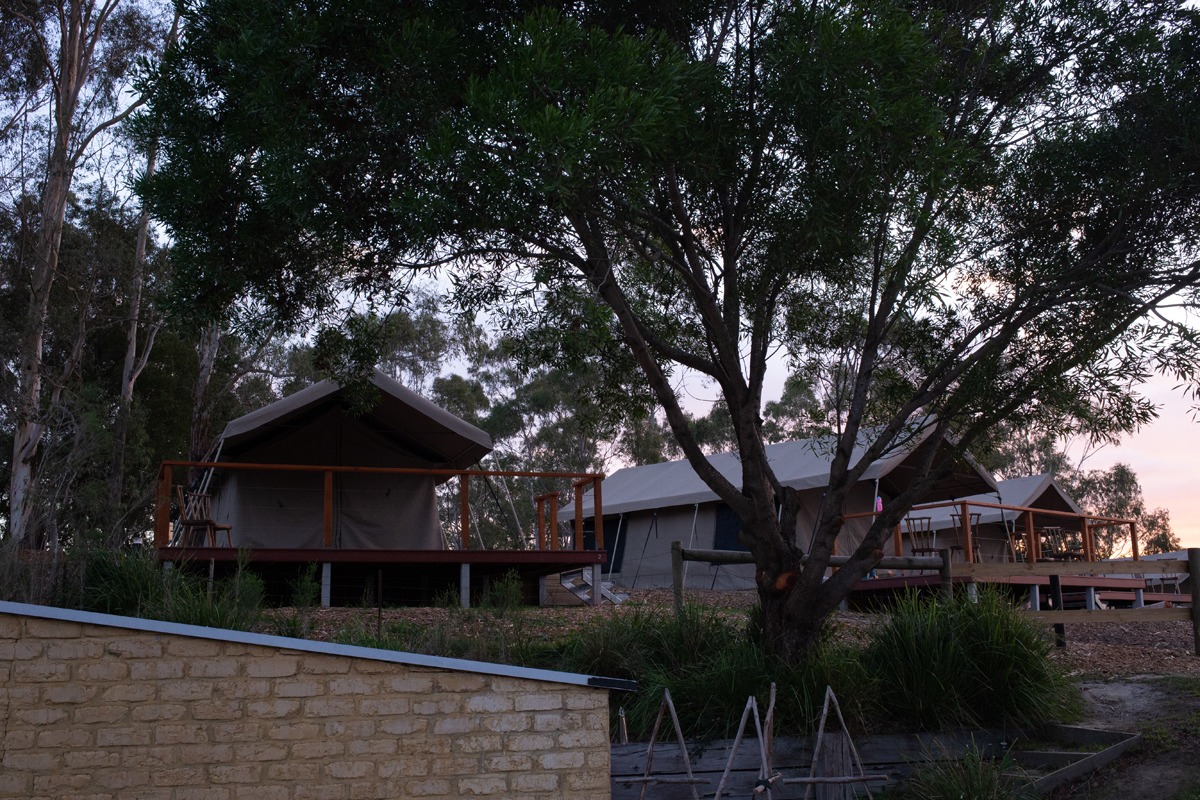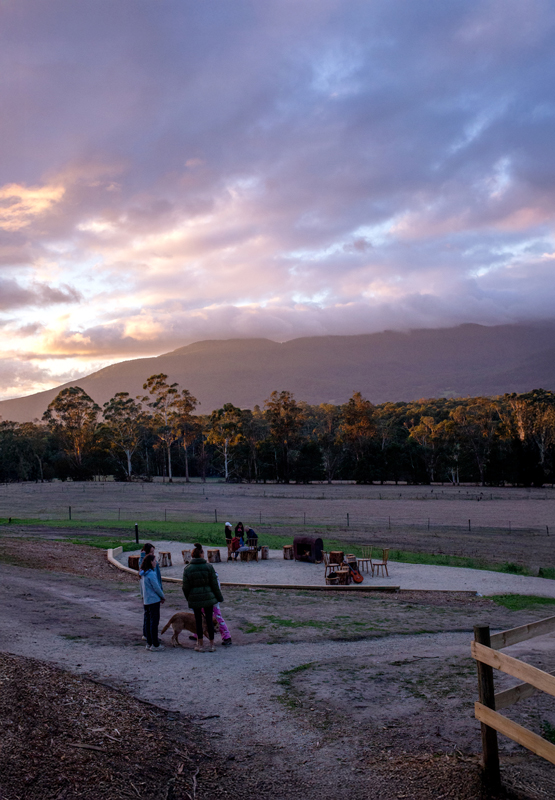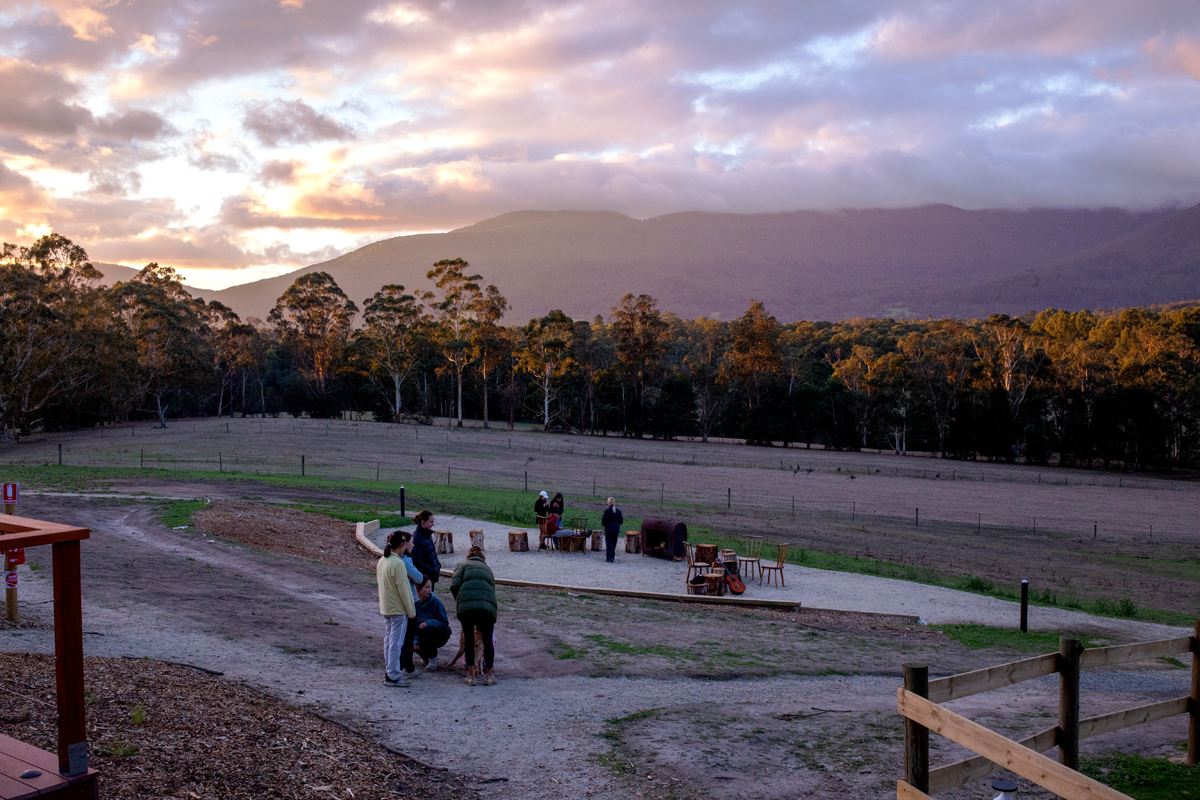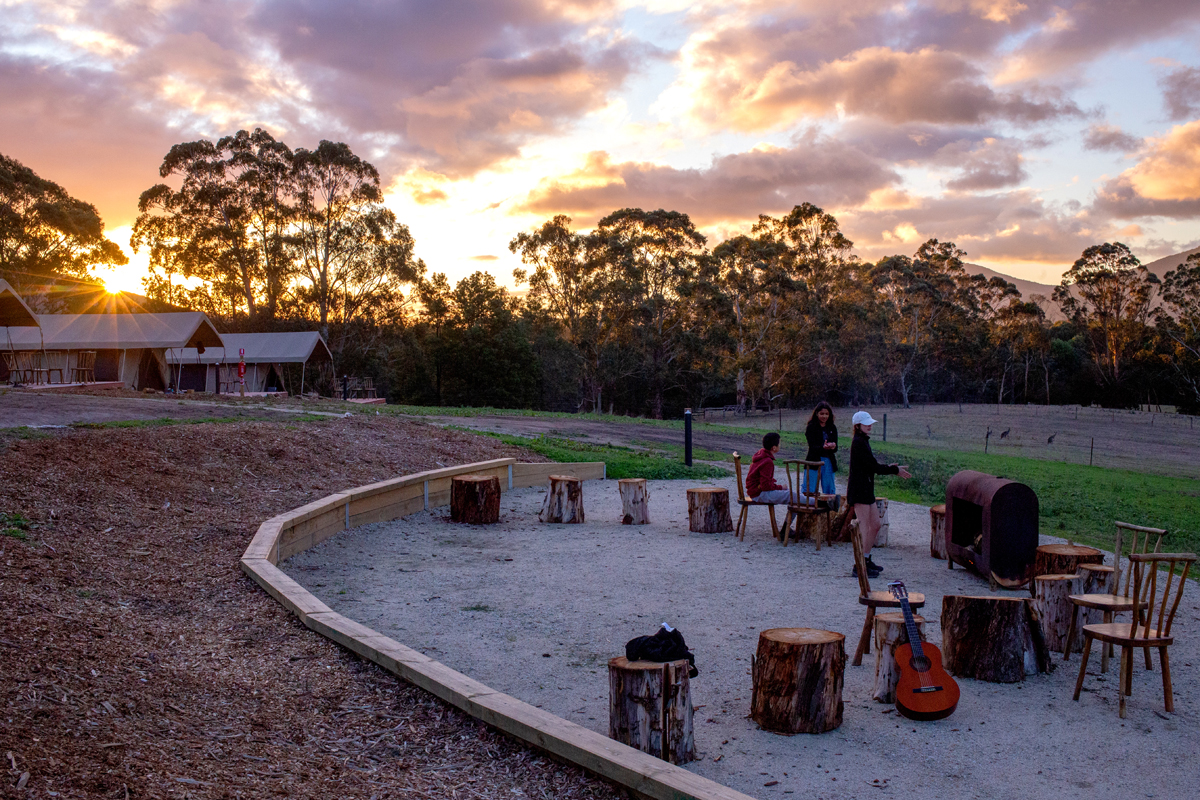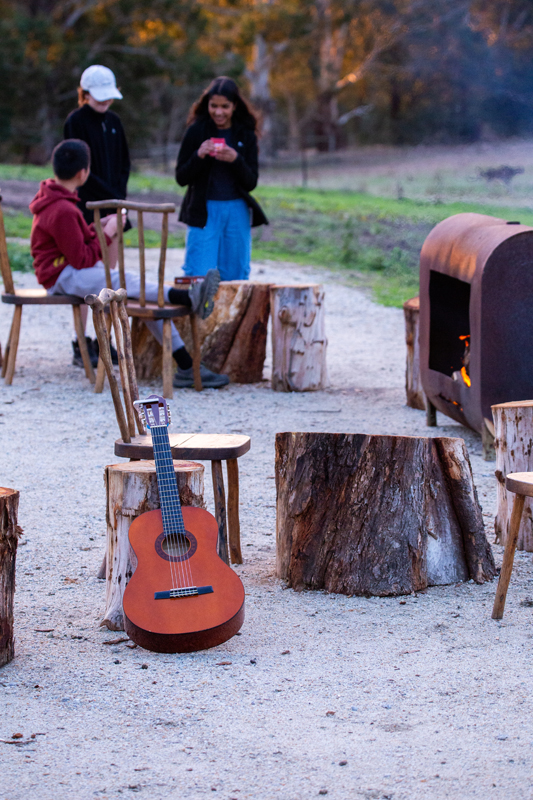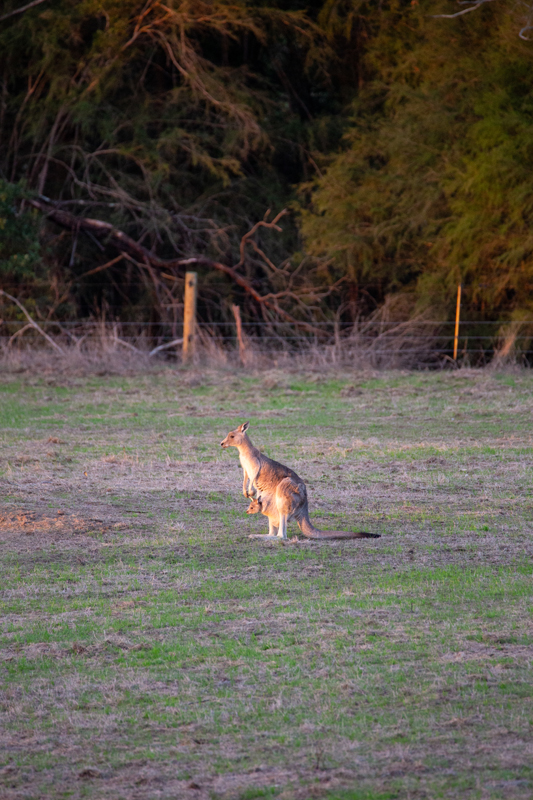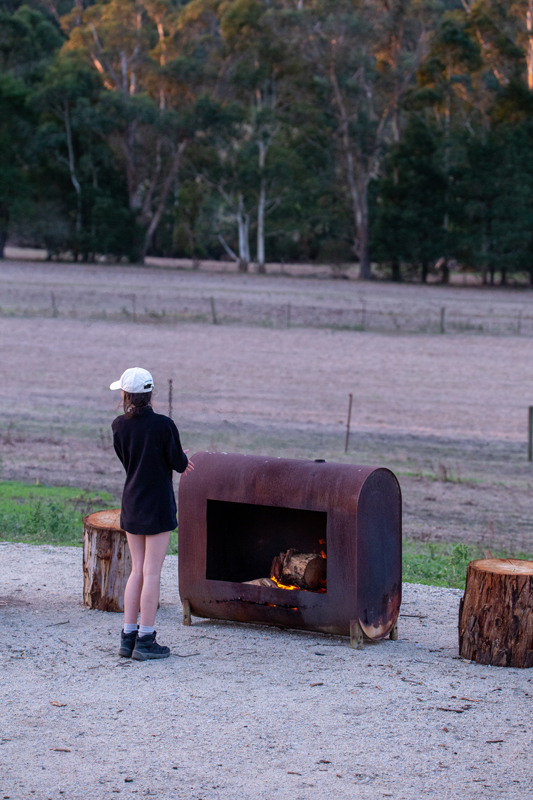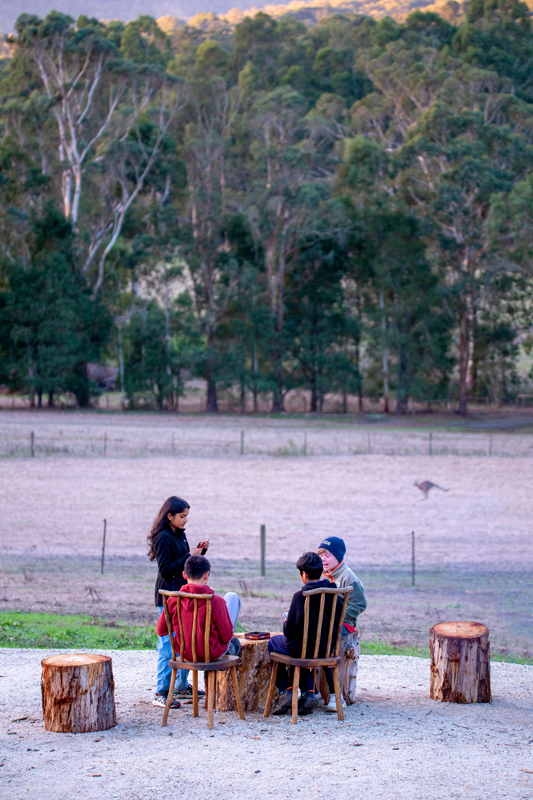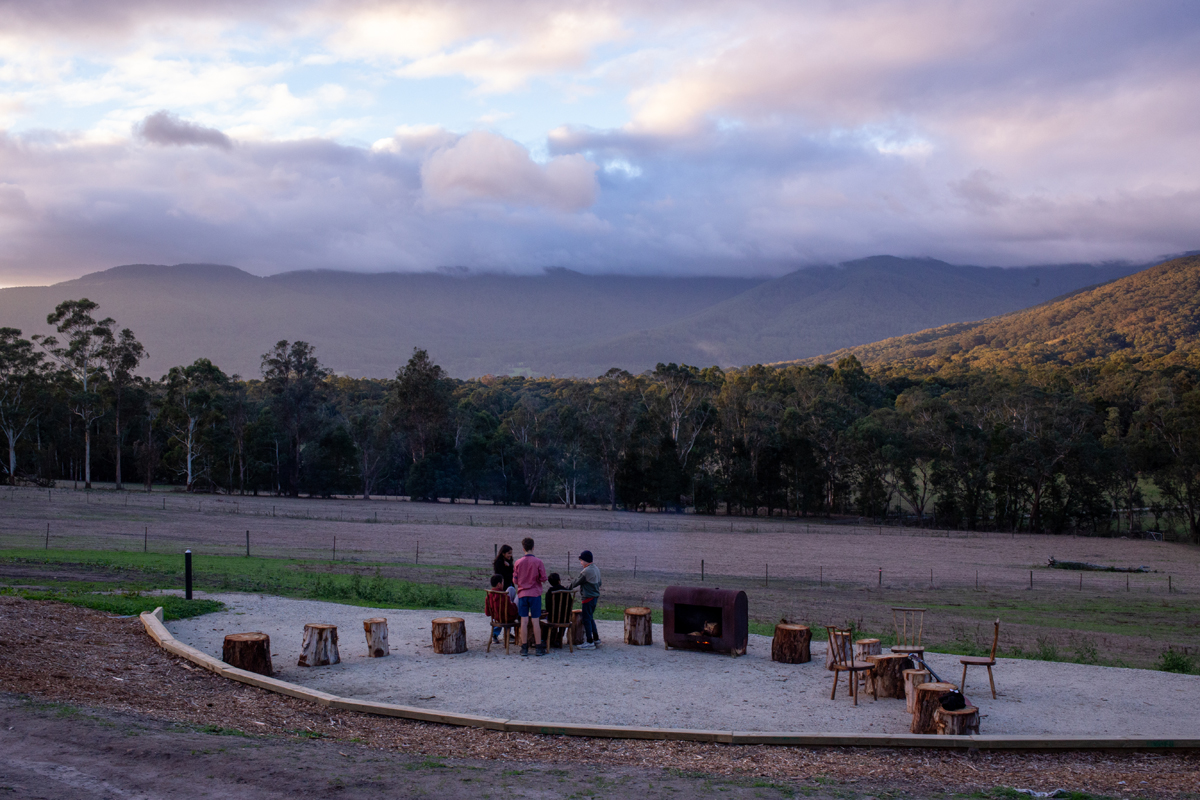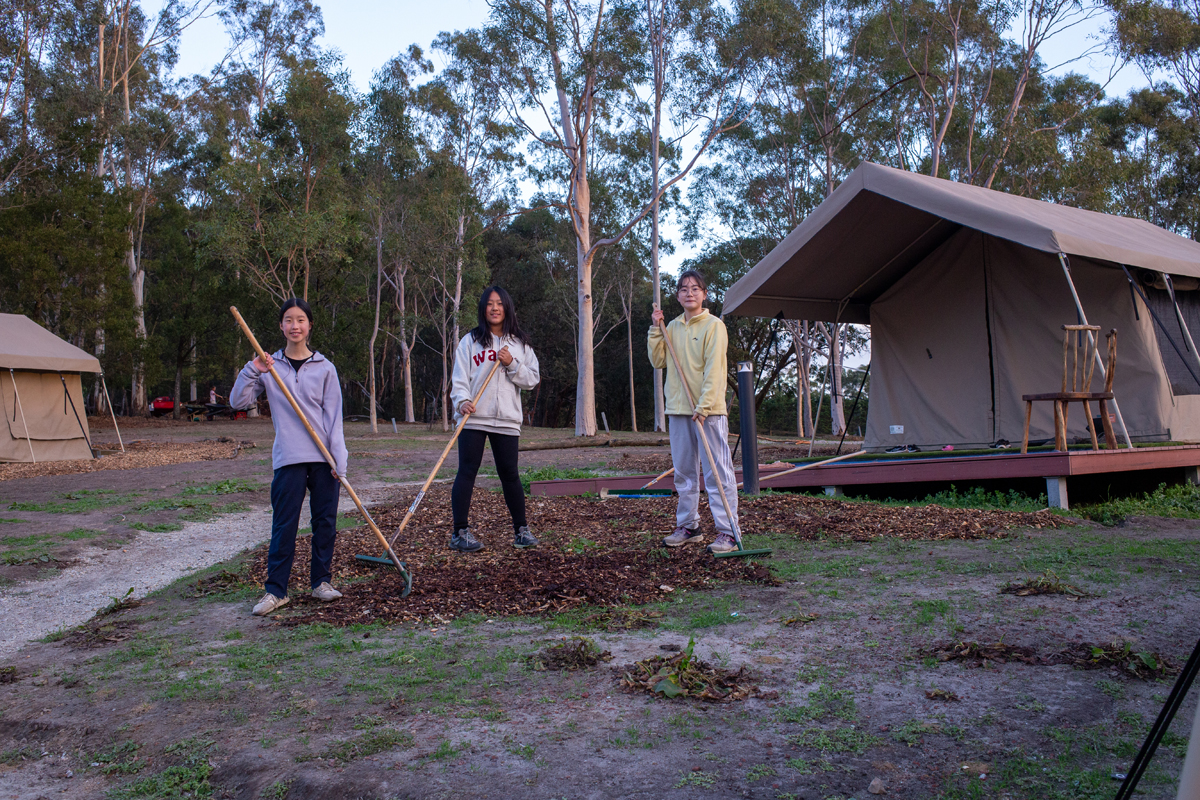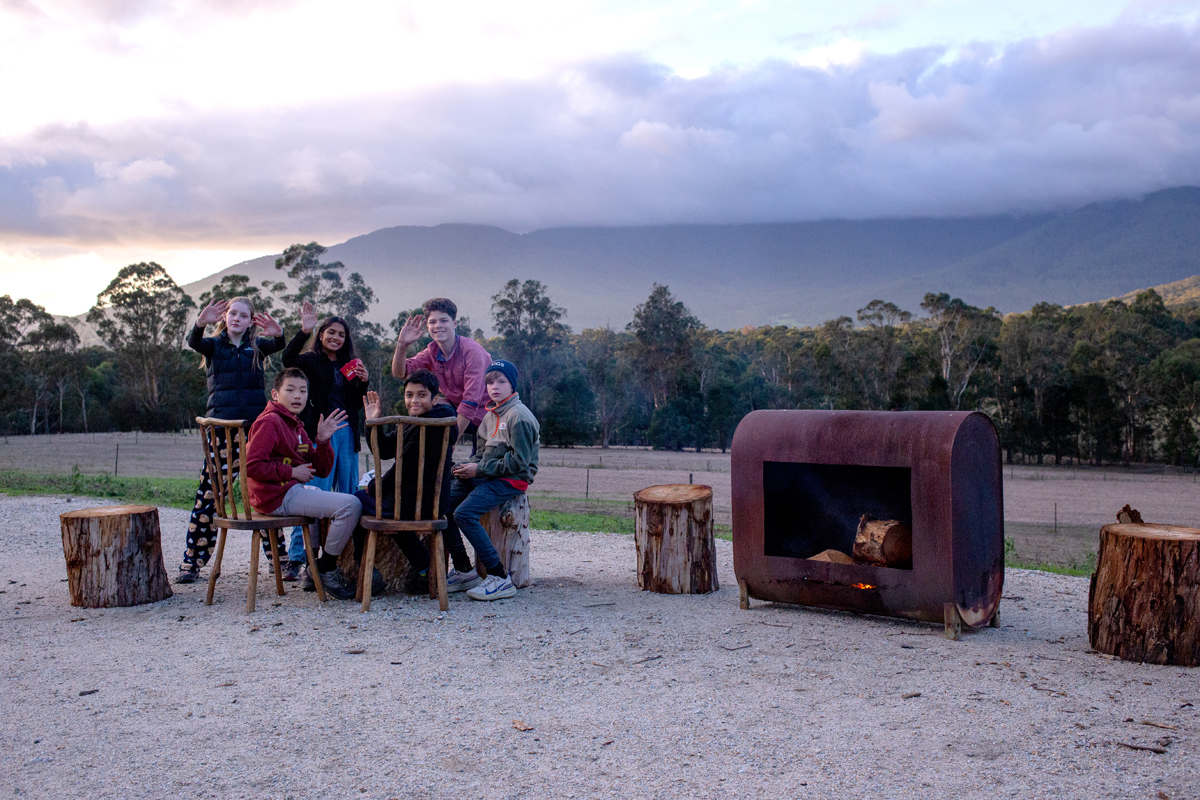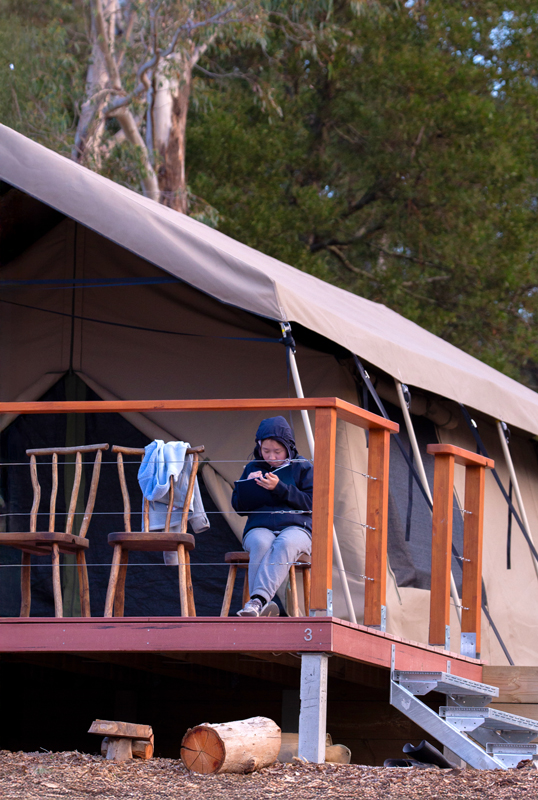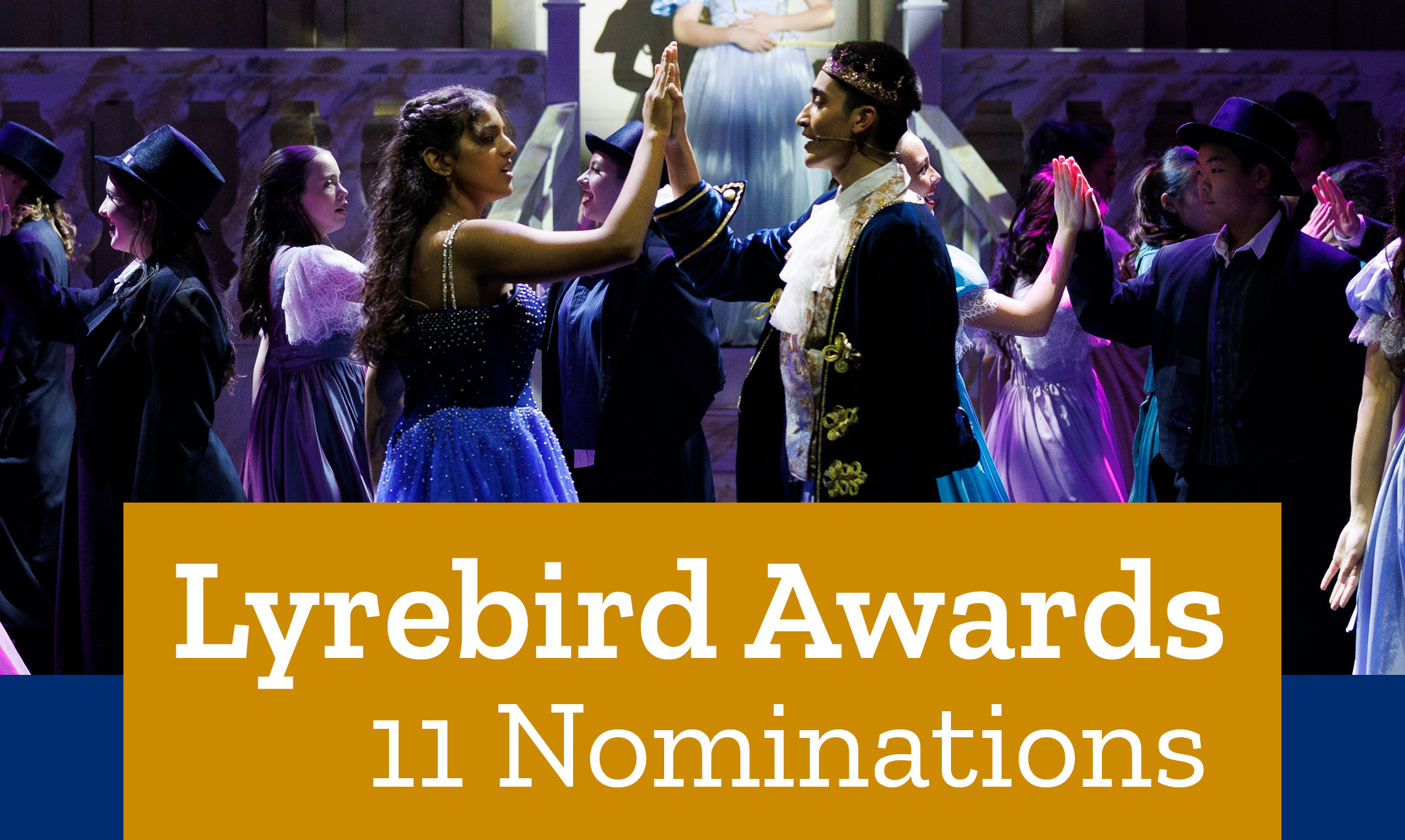Known for its immersive outdoor education program – complete with dairy farm, sustainable living and high ropes – Yarra Junction (YJ) has long been an inspiring place for students to connect with nature and learn outside the traditional classroom setting. But recent changes at YJ are ushering in a new era of growth and innovation, both physically and program-wise, reflecting the School’s commitment to delivering meaningful, real-world experiences for students.
According to Sarah Klein, Head of Yarra Junction, the upgrades were driven by a strong commitment to enhancing the quality of the YJ experience.
“We’ve essentially expanded the physical layout of the Campus, which allowed greater flexibility in program scheduling,” says Sarah.
One of the most visible outcomes of this is the addition of new accommodation located at Wadambawilam – affectionately known as ‘WAD’ (which translates to ‘place of learning’). The 10 large, comfortable structures are now home to Year 8 students during their stay at YJ, creating what Sarah describes as “its own neighbourhood”.
“The new accommodation is comfortable with full beds, and the students really enjoy the space, as it offers them more autonomy and ownership over the community,” says Sarah. “The location is more remote, and they get an amazing view, with more space to reflect and be present.”
The new configuration allows two programs to run simultaneously and autonomously: Years 5 and 7 students stay at Cuming House and the eco cabins, while Year 8s stay and learn up at WAD. The two groups don’t formally interact, but there’s a healthy sense of curiosity among the younger students.
“The Year 7s get a glimpse of the new accommodation as they walk past WAD on their way to milk the cows of a morning. It builds excitement, and they can’t wait for their turn.”
Alongside the new accommodation, a number of smaller infrastructure improvements have been made, to refine the general workability. There’s also a newly established yarning circle featuring a fire pit at its centre. “We’re still waiting for the grass to grow,” Sarah laughs, “but it’s already a great space for reflection and conversation.”
These changes aren’t just about accommodation – they’re part of a deeper shift in how the Campus frames its outdoor education journey.
“We’ve really focused on the idea of a rite of passage,” Sarah explains. “The goal is to provide students with experiences that push them out of their comfort zones in a healthy way, helping them to become stronger and more capable. The Year 8 program, for instance, revolves around the hero’s journey – students face challenges, work together and grow through the experience. The idea is that they return to their everyday lives with a new sense of self-awareness and capability.”
That sense of growth often comes with initial anxiety – especially for students unaccustomed to outdoor environments or time away from home. “We do see students struggle,” Sarah acknowledges. “It’s common for them to be nervous, especially if they’ve never been away from home. We work with them to identify their particular worries – whether it’s sleeping arrangements, the cold or not knowing what’s coming next.”
Her team’s approach is one of empathy, relationship building and gentle challenge. “Some students need to know exactly what to expect – timetables, routines, clear instructions. Others need reassurance that we’ll help them through whatever arises, and some are happy to give everything a go. A shared piece of advice students would offer their younger selves is to have an open mind, it’s never as bad as what you initially think. That transformation is what we aim for.”
It’s not just personal growth on offer. Sustainability has also been front-of-mind throughout the upgrades. Students are expected to pump their own water, light fires to heat it and manage their own energy via solar-charged battery packs.
“The new accommodation is not powered,” Sarah reveals, “so students need to think practically about how they’ll light their space. These kinds of responsibilities teach them about resource use in a very tangible way.”
Biodiversity and conservation are also part of the learning. “We’re working on protecting local species like the Helmeted Honeyeater and the Leadbeater possum. On the farm side, we’re also using genetic testing to improve herd efficiency –
lowering methane emissions and increasing milk production. It’s all part of showing students how their actions effect the world around them.”
The recent enhancements are as much about future-focused learning as they are about enriching the present experience.
“We need to ensure we have the physical space and program capacity to support a diverse and enriching educational offering,” says Sarah. “But it’s more than just logistics – everything we do is about helping students learn about themselves, others and the world around them.”
This strategic direction is echoed by Mike Gregory, Vice Principal – Student Experience.
“The YJ upgrades reflect our long-term vision and commitment to provide every student with transformative, real-world learning. It’s not about teaching content in isolation – it’s about building young people with grit, who are self-aware, adaptable and ready to engage with a complex and changing world.
“With new infrastructure, a refreshed curriculum and a clear focus on both sustainability and student wellbeing, YJ is well placed to continue nurturing confident, capable young people – equipped with values and experiences they’ll carry for life.”
